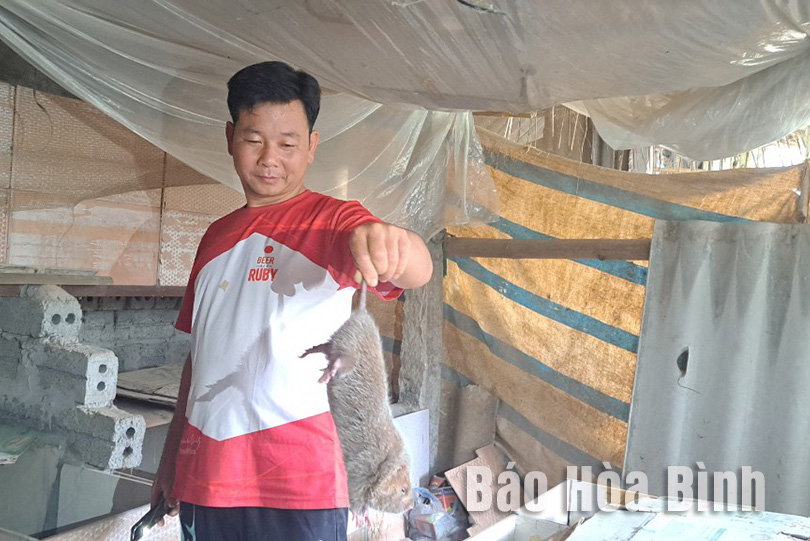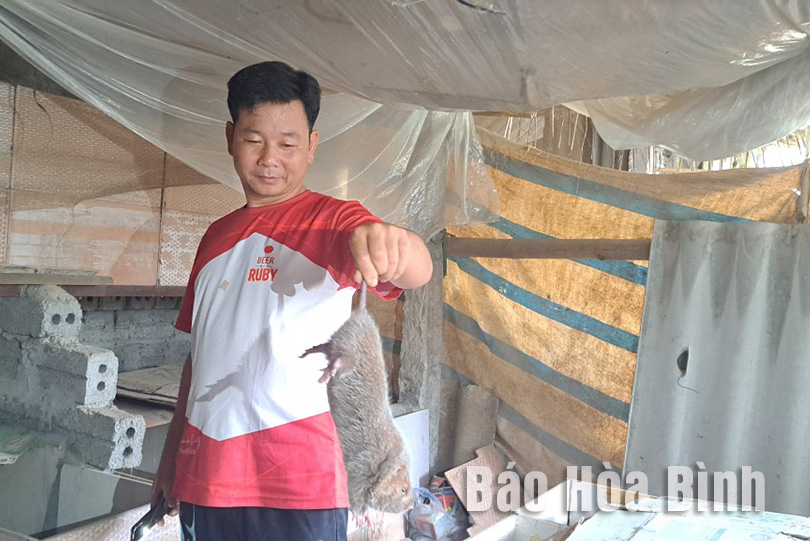
After several unsuccessful attempts to raise pigs, buffaloes and cows, Nguyen Hong Minh who resides in Mui hamlet, Hoa Binh city’s Doc Lap commune decided to try breeding bamboo rat.

Nguyen Hong
Minh raises about 200 bamboo rats, bringing about high economic efficiency.
like other farmers in Doc Lap commune, Minh has cultivated
many types of crops and raised pigs, buffaloes, and cows but they failed to
deliver expected results.
Even when he harvested bumper crops, profit was low due to
plummeting price. He raised pigs for several years, but suffered from losses
due to diseases and high prices of animal feed.
Upon knowing that game meat is favoured by consumers, he
thought of raising bamboo rats as food for this type of rat is available in the
locality and brings about higher value.
At first Minh bought bamboo rats from people who hunt bamboo
rats in the wild and turned his old pig barn into a breeding facility. The
bamboo rats grew well, but after giving birth, the female ones often bit their
babies to death, reducing the number of offspring as well as economic
efficiency of farming.
Minh looked for information about the trade on the internet
and found out that many establishments had succeeded in raising wild bamboo
rats with proper licence. He decided to follow suit. After more than two years,
his bamboo rats grew healthily and rapidly multiplied. The offspring are sold
to breeding households in the locality and the mature ones for consumption.
Sometimes he did not have enough bamboo rats to sell.
Drawing lesson from failed attempts, he focused on raising
native bamboo rats and expanding the herd. His effort has been paid off as now
he has 200 bamboo rats.
According to Minh, it is easy to raise bamboo rats because
they eat sugarcane and bamboo only once a day and can reach a weight of 1.5-2kg
after 12 months of breeding.
With a selling price of 600.000 VND (24.5 USD) per kg, this
kind of rat brings higher economic value than raising chicken or pigs, he
said.
According to data from the Hoa Binh Provincial Party Committee, the industrial production index for the first six months of 2025 is estimated to have increased by 20% compared to the same period last year. This marks the highest year-on-year growth rate for this period since 2020.
In the first six months of 2025, Hoa Binh province’s export turnover was estimated at 1.145 billion USD, marking an 18.11% increase compared to the same period in 2024. Import turnover was estimated at $ 804 million, a 17.15% increase, which helped the province maintain a positive trade balance.
The lives of the ethnic minority farmers in Tan Lac district have gradually improved thanks to the new directions in agricultural production. This is a testament to the collective strength fostered through the professional associations and groups implemented by various levels of the district’s Farmers’ Union.
With the motto the "product quality comes first,” after nearly one year of establishment and operation, Muong village’s Clean Food Agricultural and Commercial Cooperative, located in Cau Hamlet, Hung Son Commune (Kim Boi district), has launched reputable, high-quality agricultural products to the market that are well-received by consumers. The products such as Muong village’s pork sausage, salt-cured chicken, and salt-cured pork hocks have gradually carved out a place in the market and they are on the path to obtaining the OCOP certification.
In the past, the phrase "bumper harvest, rock-bottom prices" was a familiar refrain for Vietnamese farmers engaged in fragmented, small-scale agriculture. But today, a new spirit is emerging across rural areas of Hoa Binh province - one of collaboration, organisation, and collective economic models that provide a stable foundation for production.
Maintaining growing area codes and packing facility codes in accordance with regulations is a mandatory requirement for agricultural products to be eligible for export. Recently, the Department of Agriculture and Environment of Hoa Binh province has intensified technical supervision of designated farming areas and packing facilities to safeguard the "green passport" that enables its products to access international markets.



